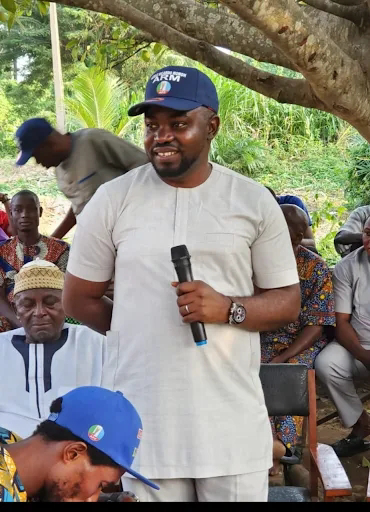By Chidinma Ewunonu-Aluko
Health experts have called on Nigerians to understand that beyond limiting births, family planning included spacing pregnancies for better maternal and child health.
The experts who spoke to the News Agency of Nigeria (NAN) in Ibadan on Friday, on the occasion of World Population Day (WPD) 2025, said that family planning was vital for improving maternal and child health.
According to them , achieving sustainable development in Nigeria requires prioritising reproductive rights, gender equality, and accurate population data.
NAN reports that World Population Day, established by the UN and first observed in 1989, is observed annually on July 11 to enhance awareness of population trends, including the impact on a large array of development challenges.
The theme for WPD 2025 is “Empowering young people to create the families they want in a fair and hopeful world”.
According to the World Bank, it is estimated that there are about 8.2 billion people on this planet in 2025.
Dr Olufiade Oyerogba, a Senior Registrar in the Department of Obstetrics and Gynaecology at the University College Hospital (UCH), Ibadan, underscored the deep connection between women’s reproductive health and sustainable development.
She stressed that “access to modern contraceptive/family planning methods should be encouraged as a human right and a tool for informed decision-making’’.
According to Oyerogba, these reproductive rights should be upheld as fundamental to any just and sustainable society.
She urged governments and policymakers to “prioritise investment in reproductive health services, including access to contraception, skilled birth attendants, and health education”.
Oyerogba advocated for integrating “comprehensive sexuality education into school curricula and ensure rural and underserved communities are not left behind in health outreach programmes”.
She linked gender equality and women’s empowerment to national progress.
“Achieving gender equality and empowering women and girls is not optional, it is essential for economic growth, social stability, and environmental resilience,” she stated.
She outlined ways to facilitate this, including “ensuring that girls have uninterrupted access to quality education and are protected from child marriage and gender-based violence.”
She added that the promotion of women’s full participation in decision-making- in the home, community, and at all levels of government was paramount.
“ Ultimately, empowered women lead to healthier families, stronger economies, and more resilient communities,’’ she said.
On the significance of World Population Day, Oyerogba noted that it highlighted the urgent need for policies addressing family planning, gender equality, poverty, maternal health, and sustainable development.
While the global population had surpassed eight billion, she cautioned that “population growth should not be viewed as the problem; unequal access to resources and opportunities is.”
She urged for advocacies that served to address these inequities form the backdrop of the world population day.
A critical barrier to development planning in Nigeria, Oyerogba pointed out, was the lack of up-to-date population data.
She called for a periodic census, “at least every five years,” warning that “not having a census is a roadblock to development.”
“ Without current data, how many hospitals more do we need to build to cater for rapid population growth?”.
She urged collaborations with diverse stakeholders, including religious leaders, traditional rulers and NGOs to support the government in carrying out their function of getting the census.
Mrs Elizabeth Abimbola, South-West Regional Coordinator for the Planned Parenthood Federation of Nigeria (PPFN), reiterated on the need for informed choices and open communication within families.
She stressed the importance of encouraging open discussions about reproductive health as early as possible with the children in the home, family planning, and relationships.
Abimbola advised families to “make informed decisions about family planning, considering factors like family size, spacing, and health to ensure they have the size they can conveniently care for.”
She reiterated that family planning methods should be utilised to space pregnancies, reduce risks and improve health outcomes.
She advised that mothers should practise self-care, recognising the importance of physical and mental well-being
Abimbola also called for policies supporting maternal and reproductive health, including access to safe abortion and contraception, and urging the allocation of funds for Sexual and Reproductive Health (SRH) programmes.
“Communities should be engaged to involve them in SRH decision-making and programme development,” she added.
Abimbola also emphasised the transformative power of gender equality.
“Empowering women helps to reduce gender-based violence, promoting a safer and more equitable society.
“Equality is not a favor, it’s a fundamental human right, women’s empowerment is not just a women’s issue, it’s a societal issue that involves all.
“The future is female, and it’s time to make it happen; our leaders should listen to women’s voices and respect their perspectives,’’ she said. (NAN)








